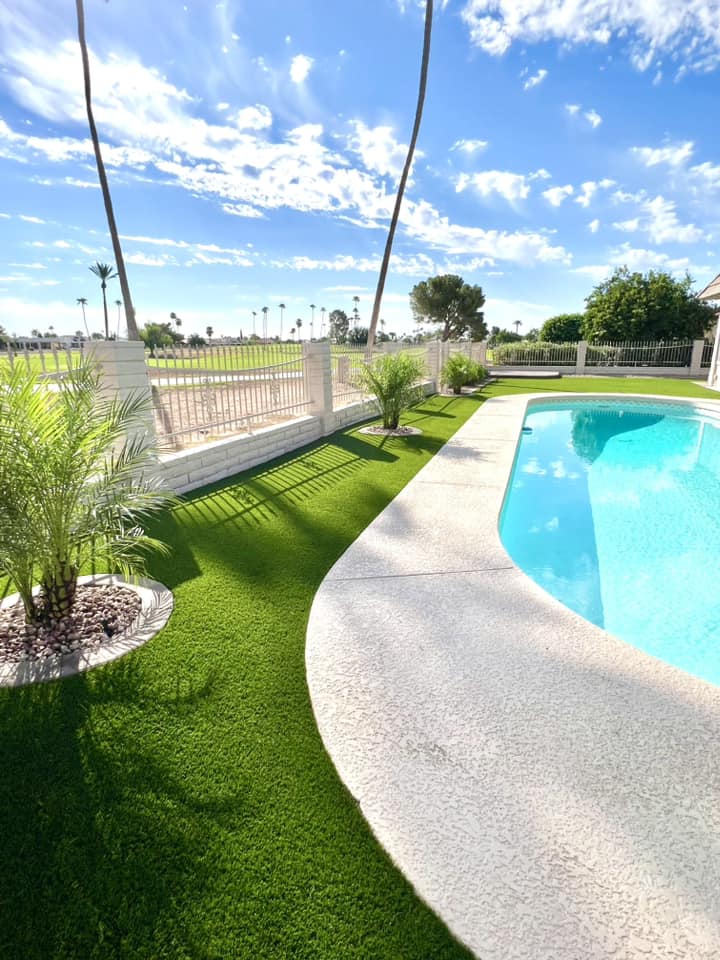
Eco-Friendly Landscaping Solutions: Sustainable Practices for Your Garden Sep 13, 2025
One of the primary steps you can take toward more sustainable landscaping is by focusing on native plants. Native plants are adapted to the local climate and soil conditions. This means they require less water, which conserves a vital resource, and are generally more resistant to local pests, reducing the need for chemical pesticides. They also provide habitat and food for local wildlife, promoting biodiversity. By choosing native plants, you're ensuring that your garden thrives with minimal upkeep while contributing to the local ecosystem.
Water conservation is another crucial aspect of eco-friendly landscaping. Implementing irrigation solutions such as drip irrigation systems can significantly reduce water usage compared to traditional sprinklers. Drip irrigation delivers water directly to the plants' roots, minimizing evaporation and runoff. Incorporating rainwater harvesting systems is another effective strategy. Collecting rainwater using barrels or tanks can provide a natural and sustainable source of water for your garden during dry spells.
In hardscaping, sustainable practices can significantly reduce your environmental impact. Opt for permeable paving materials like gravel, stones, or permeable concrete that allow rainwater to seep through and replenish groundwater supplies. These materials help in reducing stormwater runoff and the risk of flooding. Additionally, using recycled materials for walkways or patios not only gives your garden a unique look but also reduces waste and the demand for new materials.
Composting is a simple yet effective way to enhance the sustainability of your garden. By creating a compost pile, you can recycle garden waste and household scraps into nutrient-rich soil. This rich, natural fertilizer improves soil structure, boosts its ability to retain moisture, and provides essential nutrients to plants. By reducing the need for chemical fertilizers, composting lowers your garden's environmental footprint and enhances plant growth naturally.
Furthermore, promoting biodiversity in your garden is one of the most significant eco-friendly practices. Installing birdhouses, bat boxes, or bug hotels can invite beneficial wildlife to your garden. These creatures help control pests naturally, reducing the need for insecticides. Additionally, creating a variety of habitats with diverse plant species can support a wide range of animal life and create a balanced ecosystem right in your backyard.
Finally, maintaining your landscape with sustainable practices is key. Regularly trimming shrubs and hedges, mulching to retain soil moisture and reduce weed growth, and selecting drought-resistant plants can contribute to a low-maintenance and eco-friendly garden. At Vix Landscape, our team of experts can guide you through the process of transforming your outdoor space into a sustainable haven that reflects your environmental values.
In conclusion, eco-friendly landscaping solutions offer numerous benefits, from conserving natural resources to promoting biodiversity. By integrating sustainable practices into your garden design, you can create a thriving, beautiful environment that aligns with your eco-conscious lifestyle. At Vix Landscape, we're committed to helping you achieve your landscaping dreams while protecting the planet. Embrace sustainability today and enjoy a greener, more resilient garden for years to come.
/filters:no_upscale()/media/4beccb45-6e87-4905-9b63-42cc6f02b493.jpg)
/filters:no_upscale()/filters:format(webp)/media/5040af5d-69e3-46b2-90ad-8be4618dc334.jpg)